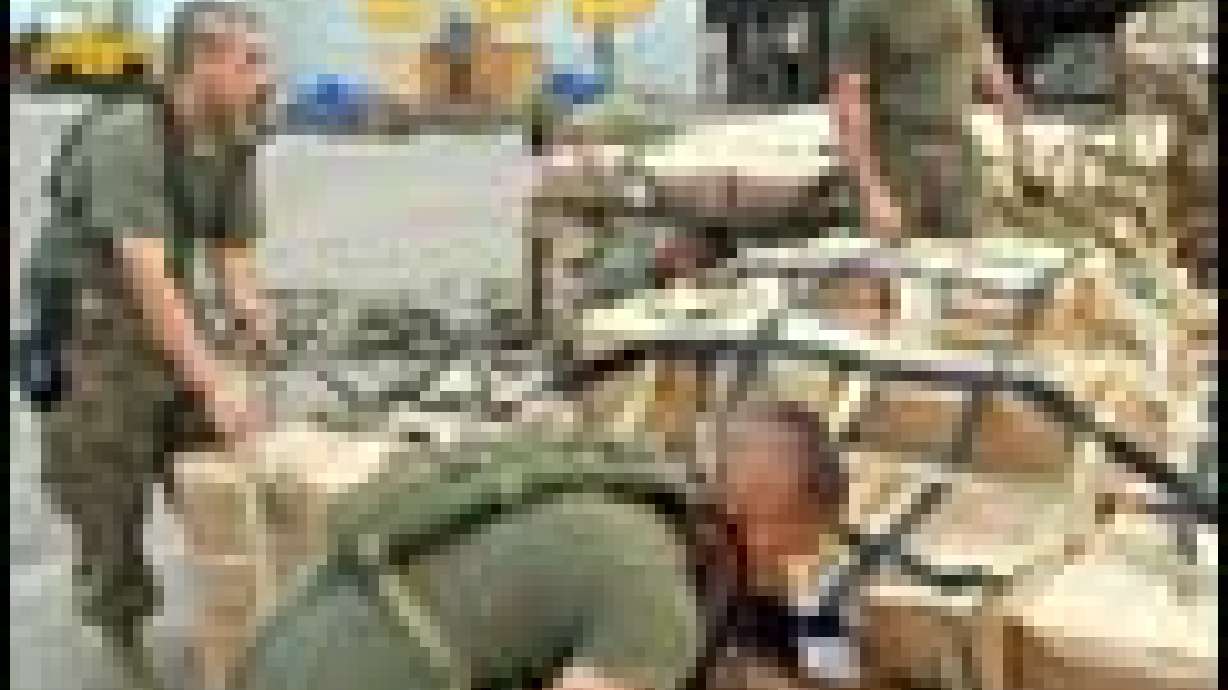Estimated read time: 4-5 minutes
This archived news story is available only for your personal, non-commercial use. Information in the story may be outdated or superseded by additional information. Reading or replaying the story in its archived form does not constitute a republication of the story.
GALLE, Sri Lanka (AP) -- U.S. Deputy Defense Secretary Paul Wolfowitz said Monday that Sri Lanka is moving swiftly from relief to reconstruction three weeks after the devastating tsunami and help from U.S. military engineers won't be needed much longer.
After visiting a battered area on its southern coast, Wolfowitz said he was "impressed by how resilient people are" and then met Sri Lanka's leaders to see what more America can do.
The U.S. defense official said cooperation by Tamil rebels in the relief efforts was "probably a good sign," and hoped the catastrophe shared by Sri Lanka's feuding ethnic groups would help spur peace efforts.
"When people face a disaster of this kind and see help coming from their government and help coming from outside, hopefully they realize on all sides that the stakes for which they are fighting are relatively trivial in comparison," he told reporters.
Indonesian President Susilo Bambang Yudhoyono said his country was "still living the nightmare of the aftermath of the horrific earthquake and tsunami," while aid workers in Aceh said the tsunami took a heavy toll on those most needed now: health professionals.
"There has been a whole generation of nurses and doctors just killed," said Lt. Col. John Crozier, an Australian surgeon helping out at a hospital in Aceh's provincial capital.
Also Monday, the Indonesian military and the top U.N. official in Aceh said they had no information of a specific threat to aid workers in Indonesia, despite a warning Monday from Denmark of an "imminent terror attack."
"I have not received any information of a specific threat," Joel Boutroue, head of the U.N. relief effort in Aceh, told The Associated Press.in the day and that the level of alert was unchanged. In Jakarta, an Indonesian military spokesman, Col. Ahmad Yani, said that officials did not know what information the Danish warning was based on.
The death toll from the Dec. 26 magnitude-9.0 earthquake that spawned killer waves in 11 nations stood Monday at nearly 163,000, with more than two-thirds of the deaths in Indonesia.
Sri Lanka's Public Security Ministry on Monday raised its national tally by 7,000 deaths to more than 38,000, while the country's National Disaster Management Center maintained its official figure of only 31,000 deaths. It was not immediately clear why the two agencies had conflicting figures. The security ministry's toll would raise the worldwide number of deaths to about 170,000.
In Indonesia, hundreds of troops from Australia, Singapore, Germany and other nations are helping the relief effort, led by nearly 15,000 U.S. troops -- most of whom are docked off the coast of western Sumatra island.
On Sunday, Jakarta backed away from an earlier call for troops to be out of Indonesia by March 26 -- three months after the earthquake-tsunami disaster.
From a helicopter, Wolfowitz on Monday surveyed rubble-lined beaches around the south of Sri Lanka, where about 700 U.S. Marines are helping clear away tsunami damage and rebuild. So far, the U.S. government has channeled $38 million to the island in emergency aid.
Wolfowitz said Sri Lanka was farther along than Indonesia in starting to rebuild, and the U.S. military may soon leave.
"We don't want to stay any longer than we are really needed," Wolfowitz said. "I think the need for this kind of military support is going away quite quickly."
Earlier, U.S. Marine Lt. Gen. Robert Blackman, who is in charge of coordinating American relief efforts in South Asia, said he expected the U.S. military to wind down in Thailand and Sri Lanka over the next two weeks.
One contingent of U.S. servicemen went to the eastern part of the country near the town of Ampara, an area where control is divided between the Sri Lankan army and Tamil Tiger guerrillas.
"We're all coming together to help all Sri Lankans, regardless of what ethnic group they're from or what area of the country they live in," said U.S. Ambassador Jeffrey Lunstead in a statement released as Wolfowitz arrived from Indonesia.
About 65,000 people were killed in the ethnic war between the Tamil rebels and the Sinhalese-dominated government in nearly 20 years until the two sides signed a cease-fire in 2002.
Wolfowitz's helicopter landed near the southern town of Galle, Sri Lanka's second largest city, for a quick visit to the Gintota secondary school where he moved among the youngsters shaking hands and asking, "Do you like Marines?"
Heavy earthmoving equipment operated by a small crew of Marines and Navy Seabees knocked down walls and cleared away debris from the school building, where the tsunami had ripped massive holes in the foundation.
"We're very sorry about what happened... The whole world wants to help you," Wolfowitz told about 50 teachers and students.
Meanwhile, Japan was preparing its biggest-ever overseas military relief effort, a mission involving 1,000 troops expected to arrive soon in their first deployment to Indonesia since World War II.
A U.N. conference in Kobe on Tuesday will focus on creating a tsunami warning system for southern Asia that could have averted many of the deaths.
(Copyright 2005 by The Associated Press. All Rights Reserved.)









